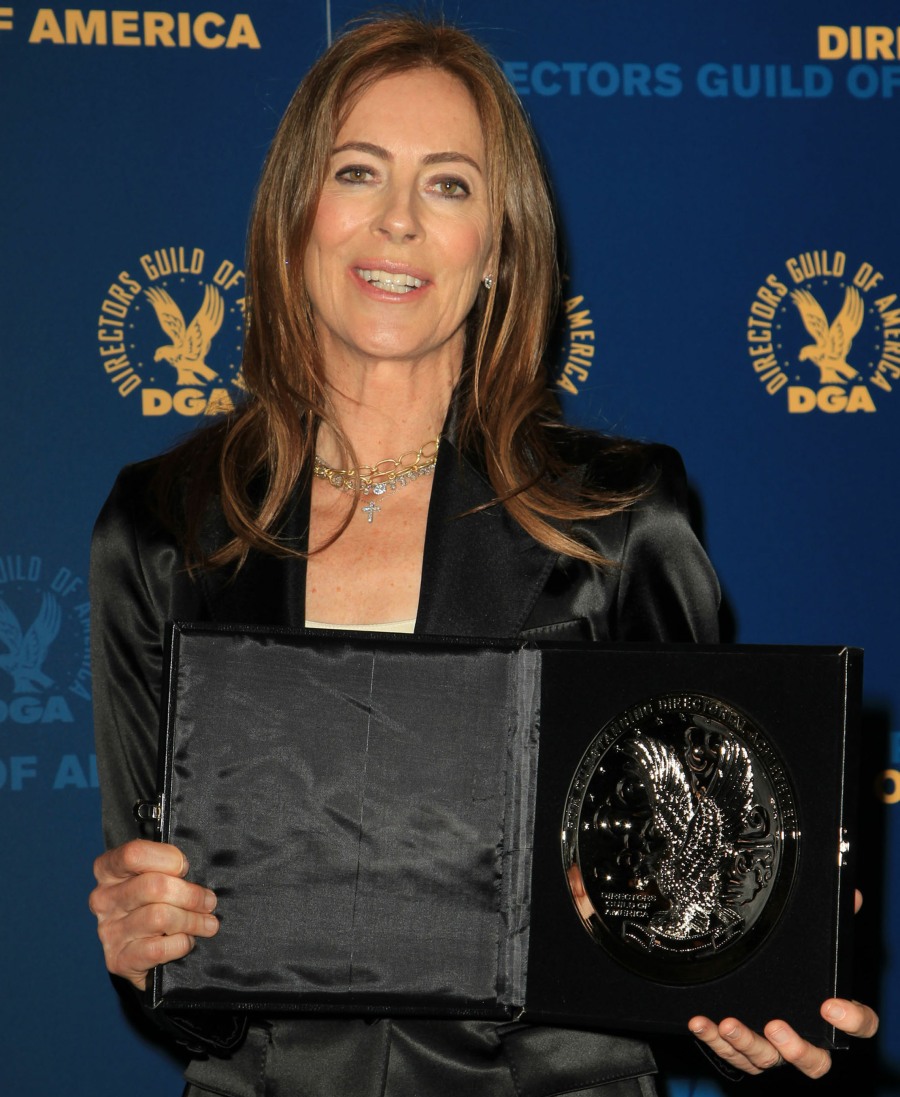The 1967 Detroit Riot was a horror show – go here to read the Wiki on what happened. The slaughter of black lives went on for five days, and within those five days, there were many stories to be told by any enterprising filmmaker. Director Kathryn Bigelow chose to fictionalize the real story of the Algiers Motel – you can read the Wiki for “the Algiers Motel incident” here. The “incident” left three young black teenagers dead, and two white females and seven black men traumatized, beaten and humiliated at the hands of Detroit police officers, Michigan State Police and National Guardsmen. Bigelow used the real story and switched around some names and circumstances and made the film Detroit.
Detroit’s reviews are all over the place – some critics are calling it a masterpiece and some are saying it’s a “misfire.” The film looks very difficult to watch for many reasons, and I imagine there will be thinkpieces written about how a white female director “handles” race and violence within the movie. But here’s an interesting take from Ira Madison III at the Daily Beast: he says that Bigelow made the choice to erase black women from the story. Madison maintains that if Bigelow merely told the story of what went down at the Algiers (fictionalized as it is), there would be no cause to call out the erasure of black women. But Bigelow follows the story to the trials of the white policemen, and that’s the problem:
One of the most horrifyingly abundant images in America is the face of a black mother grieving for her slain child. Gwen Carr, Sybrina Fulton, and Lezley McSpadden (mothers of Eric Garner, Trayvon Martin, and Mike Brown respectively) were among the many “Mothers of the Movement” who endorsed Hillary Clinton at the Democratic National Convention last year. When black boys and men are killed, it is often their mothers who take up the cause of justice when the legal system fails them. It’s an unsung tradition that includes brave women like Rebecca Pollard, the mother of Aubrey Pollard, one of three young black men murdered at the Algiers Motel during the 1967 Detroit riot.
It is Rebecca’s stunned face that was pictured in the Chicago Tribune on June 11, 1969, seen leaving the courtroom after an all-white jury found Detroit police officer Ronald August innocent in the murder of her son. Rebecca’s face is why it’s so egregious that there are no black women in the trailer for Detroit. Social media was quick to call out the seeming erasure of black women from the story of the 1967 riot—an understandable charge given that the film’s title is a misnomer, as it has little to do with the city of Detroit itself and the entire scope of the riot.
…Unfortunately, the lights don’t come up once the Algiers victims escape their Sartre-esque trap. Boal’s script continues on to the aftermath of the riot and the trials of officers Ronald August, Robert Paille, and David Senak. It’s here that the claims of erasing black women from the narrative hold weight. Detroit breaks tradition with most of Bigelow’s oeuvre as she attempts to use her film to bring some modicum of justice to Carl Cooper, Fred Temple, and Aubrey Pollard, who never received it from that all-white jury in 1969.
In one fleeting moment after the officers are acquitted, a black woman insists to reporters that if white men were found in the hotel with black women, no one would have died. It’s a statement that sadly rings true, but in the context of Detroit, laying this piece of dialogue at the end of the film instead of dissecting it exposes the weaknesses in Bigelow’s and Boal’s approach. To truly condemn these officers and achieve justice for the grieving families—as well as a ravaged city that still has not fully recovered—you must include the stories of the black women who sustain the movement; who grieved for their sons so profoundly that they held mock trials in their churches (one of which saw Rosa Parks famously act as a juror) to prepare them for the verdict and educate the community on what happened that night. Detroit is a triumph when Bigelow documents a single night of horrors, but when she has to conjure up the souls of the men and women who awoke the next morning, the spirits of Detroit are silent.
I think Madison makes a valid point – Bigelow wanted to make a film about the Algiers Motel murders and there weren’t any black women involved, so that part of it is fine. But then Bigelow continues the story to the trials of the police officers and that’s when the film could have used the mothers of the murdered teenagers to ground the story of what happens next. Ira Madison is also the same writer who half-way defended Sofia Coppola for “staying in her lane” with The Beguiled, by the way. He’s not excoriating Bigelow for erasing black women, he’s saying that the argument is valid and should be addressed.
Photos courtesy of WENN, IMDB.
















A valid point, indeed. I do like how the critique is framed.
As an aside, I’ll also add between necessary outrage (which I wouldn’t
characterize this piece as expressing ‘outrage’) and faux outrage, I’m fatigued.
A valid point. And a well grounded critique. Erasure of black women seems to be common these days
It has been a pattern for a very long time in America from antebellum slavery, during suffragettes struggle, etc until today. From southern belles to trumpettes, white feminism is a new term to a century old practice
Im pretty tired of all criticism of people who make subjective art for a living getting a bad rap for how they choose to do their art. this wasn’t a documentary. they didnt get a blue actor for a genie in aladdin.
I expect journalism to be fair and accurate and completely factual and to include everything that is relevant to the story. I do not expect this from auteurs and I don’t expect it from the art that I engage with. there is no way to be 100% representative of anything when you’re engaging with something artistic, by definition. it’s a subjective process for the creator and for the audience. enough of this.
I hope the people who are outraged over everything like this remember to vote, to call their congressperson when they are about to vote for something terrible, to read actual journalism instead of getting their news from facebook and instagram, etc.
While I understand your POV, especially given that I expressed something similar upthread, you’re unnecessarily dismissive. Regardless of art being subjective, one should be mindful of the narrative of a historical account, ESPECIALLY if it involves marginalized individuals. I’d caution studio execs to heed such advice given that subjectivity no longer flies in such situations (I’m looking at you Stonewall).
No one is asking for perfection, but just a reminder to continually make sure we aren’t leaving anyone’s story behind. Black women have been the (invisible) backbone of AA social justice movements.
I see the critique as calling for ways to improve moving forward, because he still enjoyed and complimented the film itself.
“they didnt get a blue actor for a genie in aladdin.” >>> Correct. They didn’t look for a human that doesn’t exist to play a magical being that also doesn’t exist. Good spot.
you missed the point of that genie comment. I don’t know if you were on the last thread about the disney casting of a south asian woman for Jasmine’s character who people decried as not being brown enough for the role or from the middle east (never mind that the disney story takes place in a completely fictional city, or that originally, the story is located in western china). the point of my comment was that when you are dealing with fiction and not journalism or documentary, that keeping everything true to life is impossible. I’m not at all dismissive of the fact that AA women and their roles in all kinds of things have been elided or underrepresented or under-covered in contemporary culture, as with a lot of other minorities, I might add. I’m not arguing that we have enough of these stories in the popular consciousness, simply that expecting auteurs and people who create fiction for a living ought to be surrogates for journalists, historians, public intellectuals, or documentarians is bound to disappoint. I imagine if she did cover what she left out, we would all be criticising her for how she represented it, how it wasn’t true to life, how it was cheap, tokenism, or racist or something like that.
She’s not getting a bad rap. Plenty of people love Detroit. Some people are pointing out flaws. Madison is just engaging with the art critically, he’s not denigrating Bigelow or making personal attacks, he’s just examining her work and critiquing it from the perspective of a back cultural critic. That’s how art works, you make it, and other people engage with it, and not everyone will agree with every choice you make. Bigelow focuses on the procedural element of the Algiers Motel murders, including the trial, and Madison is critiquing that choice.
The fact that this keeps coming up, though, should be discussed. Perhaps white filmmakers could be doing more to support their black peers to tell these stories. That white filmmakers keep falling short with black stories is worth discussing.
I get what you are saying but in this instance it doesn’t make sense for her to have erased black women.
I’m pretty tired of people who complain about what bothers other people.
Artists are humans, too. They hinder or help reality. They are not infallible. Such a glaring flaw misses the enormous impact the riots had on a community.
This makes me think Ira is changing how he views certain things.
I watched the film at a screening. But I still do not see his point as it pertains to this particular film. I don’t understand how you would include the black women without it feeling cheap or extending the film another half hour and therefore make it a completely different film. Like if Bigelow was going to go into the reactions of the black women, it would have to be another movie in itself. Otherwise it would feel rushed/cheap. Because the aftermath of losing a father or son in the manner in which those men were taken is not just one emotion. It’s not just a particular point in time. It is a prolonged and traumatic experience that no one can explain unless they have been through it and in order to try and showcase it, it would require proper development in a film.
Maybe if the movie she made was specific to the aftermath of what occurred, he would have a valid point. But that is not the movie she made nor is it the movie she intended to make. She wanted to cover a very specific event during the Detroit riots, and that is what she did.
I found the trial part really boring and anti-climactic after the motel scenes. The short scene of the family learning about their son’s death was far more affecting. Another option would have been to skip the trial and focus on the families. In the movie she made, there isn’t room for all of it, you’re right, but the point Madison is making, I think, is that a different decision could have been made.
I agree. I didn’t think the trials added anything to the film to be honest. I guess I could see them replacing the trials with the reactions of the families instead.
as with anything in literally any piece of work created by anyone. completely subjective critique, which he is entitled to, and all kinds of things could be thought about to be swapped in. That’s the point! artists make decisions for one reason or another. sometimes people don’t agree with those choices. and that inspires other artists to do stuff their own way differently. all fiction is representation. yes, this was based on actual events, but it’s a fictionalized retelling, completely subjective.
Keep It, as Ira would say.
I think the nitpicking is going a little too far on this one.
It is so easy to say that when it’s not your image being erased.
Imagine this: the only time you see women who look like you on the screen is when you are presented as stereotypes; hypersexual, angry, mean, ugly, loud, abusive, degrading…and when you are portrayed in a positive light you are replaced by biracial half black half white women.
Romeo and juliet? Juliet played by Gugu Mbatha-raw.
The notebook? Instead of rachel mcadams you have Thandie newton. Shakespeare in love? Gwynets character? Played by halle berry.
Why not? They are after all just as much white as they are black <—— this is the excuse black women hear all the time but reversed.
Imagine this happens like 90% of the time and see if you'd like it.
I don’t like it when artists are being told what to do.
Fascism anybody?
Artists aren’t infallible. They hinder or help like anyone else. If you’re doing a story based on reality, get it right.
but she DID get it right though? just another aspect of it.
what she portrayed did happen, she focused on this side/aspect of the story and left out another, that’s it